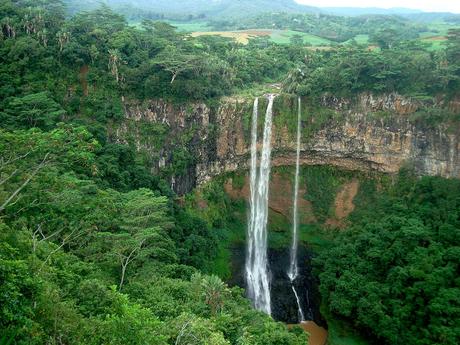 We received further proof this week that we don't really know as much about our own planet as we like to think we do. That somber reminder came when scientists announced that they had discovered evidence of a previously unknown continental crust located under the island of Mauritius in the Indian Ocean, indicating that there was once a landmass – which is now being called Mauritia – in that area that hadn't been accounted for before.
We received further proof this week that we don't really know as much about our own planet as we like to think we do. That somber reminder came when scientists announced that they had discovered evidence of a previously unknown continental crust located under the island of Mauritius in the Indian Ocean, indicating that there was once a landmass – which is now being called Mauritia – in that area that hadn't been accounted for before.This revelation came about when researchers discovered zircon crystals in rocks on Mauritius. Those crystals are believed to be over 2 billion years old, while the island itself is a mere 9 million, which in geological terms is practically a newborn.
At the moment, scientists don't know much about Mauritia or what may have happened to it. But, the report indicates that the crystals are about the same age as those found on the island of Madagascar, leading some to speculate that it was once a part of this lost continent as well. If you know anything about Madagascar, you probably already know that it is a bit of an anomaly itself, with plant and animal life found nowhere else on the planet, and unique geological structures that are all of its own.
Chances are, we may never know what this lost continent was like or how it was destroyed, but knowledge of its existence fundamentally changes the way we view our planet. It also tells us that there are forces at work that we don't know about, even here on Earth. We have a lot to learn, that much is certain. But these kinds of discoveries are always fascinating.

